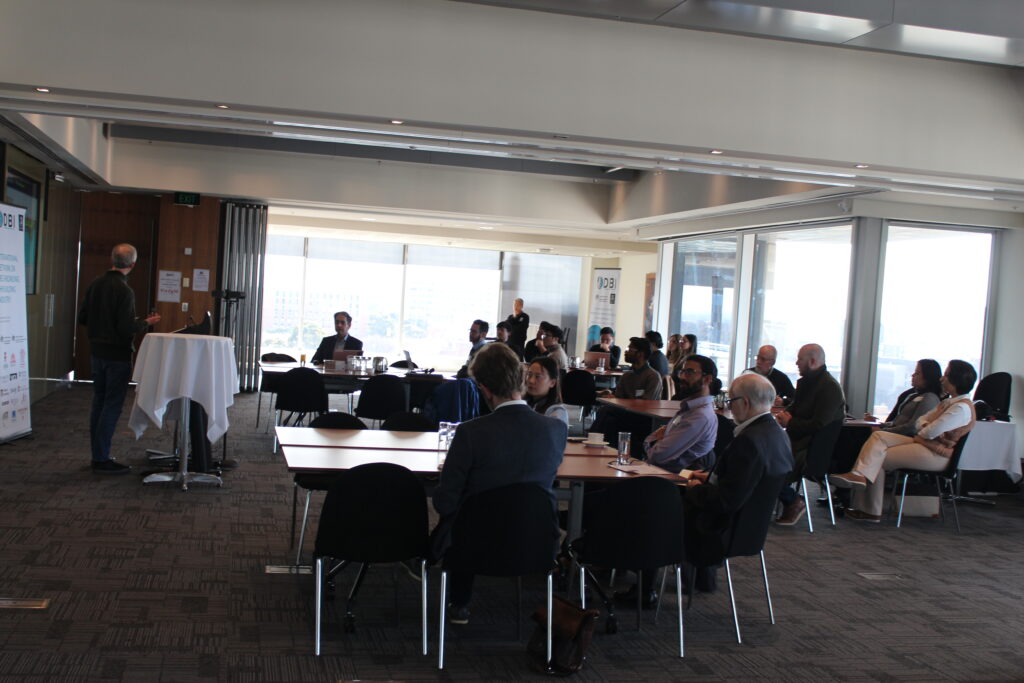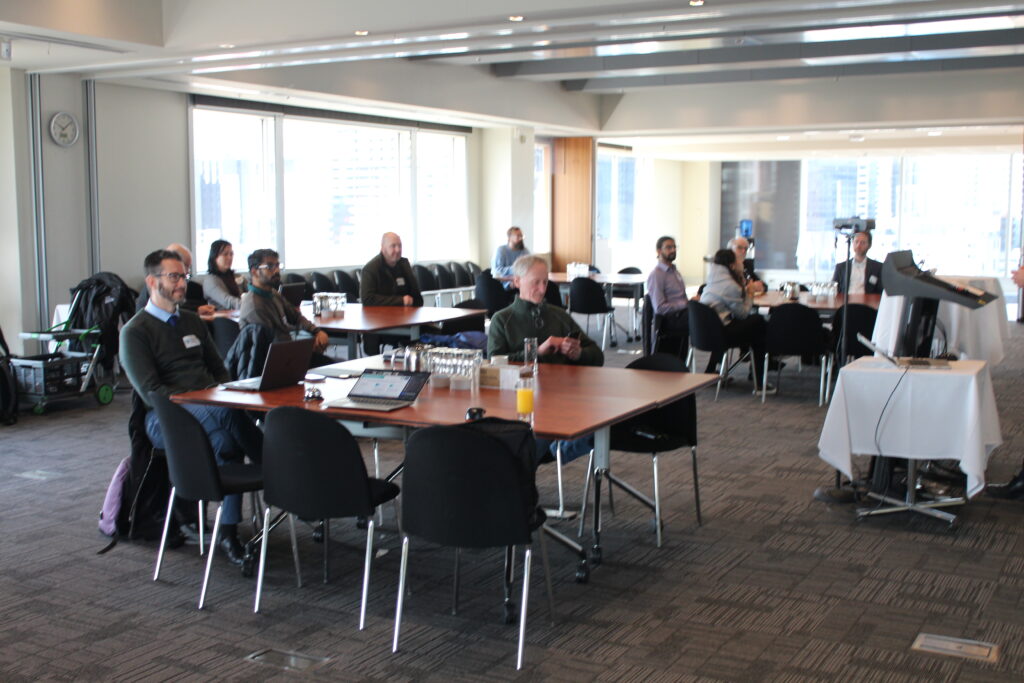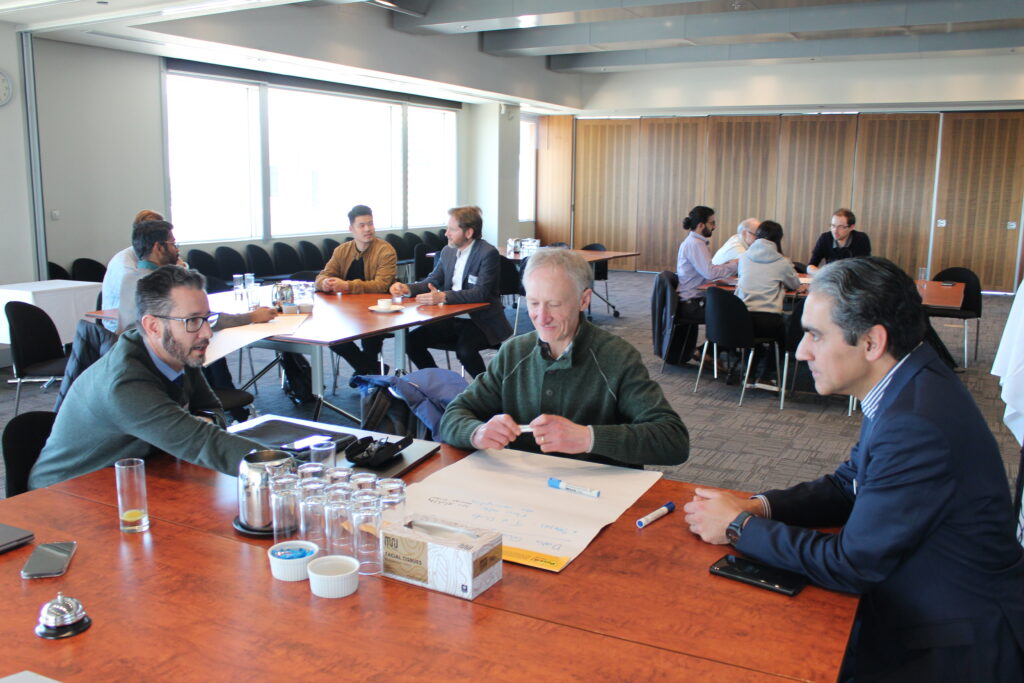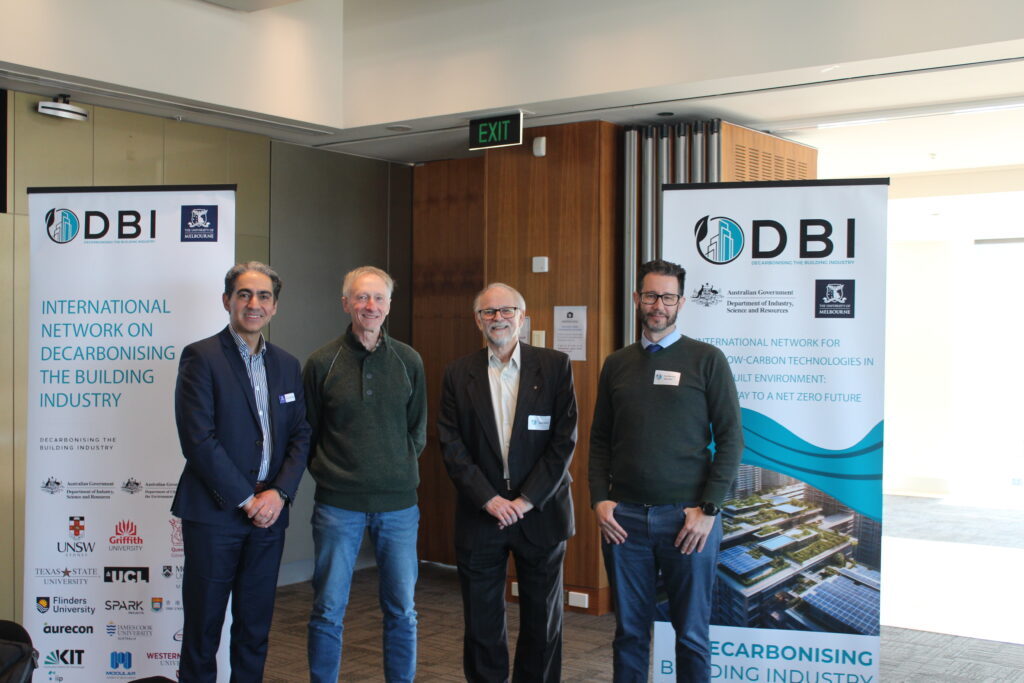On 5 September 2025, the Decarbonising the Building Industry (DBI) network hosted a workshop at the Woodward Conference Centre, University of Melbourne. The event, held in Carlton, Victoria, focused on “Role of energy systems in decarbonising building operation”. In partnership with the University of Melbourne, Egg Geo, and 4EE, it gathered experts from academia, industry, and government to explore geothermal and thermal energy systems, policy challenges, AI applications, and heat pump integration for net-zero buildings. Attendees discussed skills for geothermal adoption, policy gaps, and opportunities for accelerating low-carbon energy transitions.

Presentations from global experts
The presentations covered a range of topics on geothermal and related technologies. Dr Graeme Beardsmore highlighted groundwater’s use for heating and cooling, citing Perth’s aquatic centres and Gippsland examples as cost-effective alternatives to gas, with potential for district systems in Morwell. Professor Rachel Webster addressed regulatory hurdles in Australia, noting outdated laws on aquifer reinjection and the need for clearer guidelines to recognise geothermal as renewable and de-risk early projects. Mr Jay Egg shared North American insights on AI-driven thermal energy networks, emphasising underground utilities for resilient heat sharing and AI tools that slash design times while boosting efficiency. Professor Guillermo Narsilio focused on ground source heat pumps integrated with infrastructure like energy piles, discussing their advantages, Melbourne demonstrations, and AI-accelerated designs for balanced loads. Professor Alan Pears explored heat pumps’ synergy with geothermal, stressing temperature differentials for efficiency, thermal storage benefits, and broader impacts like reducing urban heat islands and water use, alongside market innovations and peak demand opportunities.
Find out more of the presentations through this post.
Roundtable discussion with experts present
The roundtable investigated: “How can AI-driven analytics and control systems optimise the management of thermal and electrical energy resources – including geothermal systems and heat pumps – in buildings to achieve net-zero operational targets without compromising occupant comfort or resilience?” Groups examined AI’s role in predictive analytics, regulations, costs, and skills. Discussions emphasised building trust in AI for consistent outputs, accountability for failures, and balancing upfront investments with faster paybacks. Participants noted AI’s potential to enforce and redesign regulations, like analysing peak demand factors, but raised concerns over data security, biased responses, and workforce transitions – viewing AI as an opportunity for upskilling rather than job loss, with calls for combined technical and AI education.

Key takeaways
Groundwater and ground source heat pumps provide efficient low-carbon solutions, proven in Australia, but need regulatory updates for broader use.
AI transforms geothermal design and operations, cutting costs and enhancing resilience, though consistency, trust, and skills gaps require attention.
Heat pumps with geothermal improve efficiency via storage and load management, offering multi-benefits like emission reductions and peak shaving.
Cross-sector collaboration is key to overcoming barriers, refining policies, and integrating AI safely.

This DBI workshop progressed dialogues on energy systems for net-zero buildings, fostering practical insights through presentations and discussions. With networking over lunch, it strengthened DBI’s collaborative ethos. Upcoming events will further low-carbon innovations.

